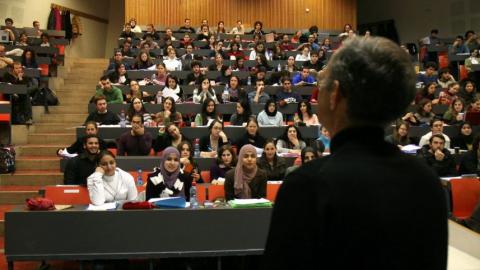Higher education in Israel is in a state of stagnation
The most noticeable declines in satisfaction are in the quality of teaching by the lecturers, which the survey showed went from declined from 3.67 to 3.55 points; student-teacher relations, which rated the lecturers overall knowledge and availability, fell from 4.01 to 3.89; and integration of technology into the classroom dropped from 3.62 to 3.45.
Ram Shefa, chairman of the Student Union of Students in Israel said the institutions must change, not only to meet the needs of their students but also the demands of the global workplace. “The system is in a state of stagnation and must undergo a comprehensive reevaluation, otherwise the trend will continue. Academic studies in the 21st century can not be the same as those that existed decades ago,” he said.
“There are some advancements being made, but as long as there is not a significant paradigm shift, a meaningful investment in teaching and revising teaching methods, satisfaction will remain on the decline... The relation between one’s degree and their place in the job market must also be more substantial, otherwise we will see more and more young people in Israel who will give up on higher education.”
The most satisfied students, overall, attend colleges rather than universities, the poll found. The Ruppin Academic Center earned an all-around score of 4.07; the Interdisciplinary Center Herzliya (IDC) 4.05 and the Kiryat Ono Academic College score of 3.99. The highest ranked university was the Open University with an overall score of 3.97. Institutions with the lowest average satisfaction scores were The Wingate Institute (2.98), Ben-Gurion University (3.30) and Tel-Aviv Academic College 3.38.
Sarah Levi

